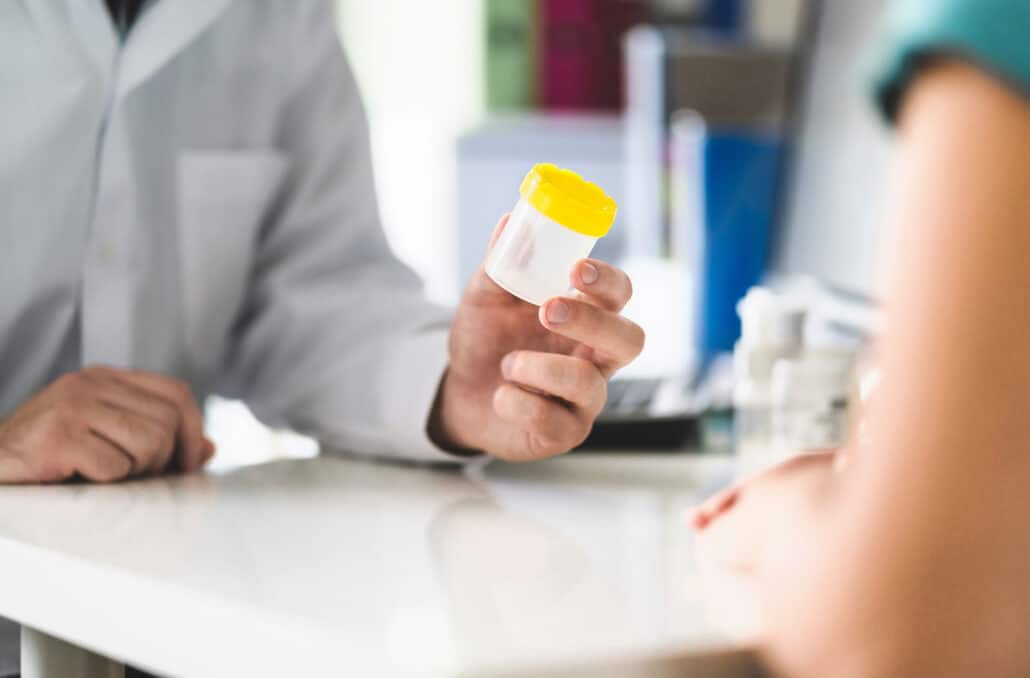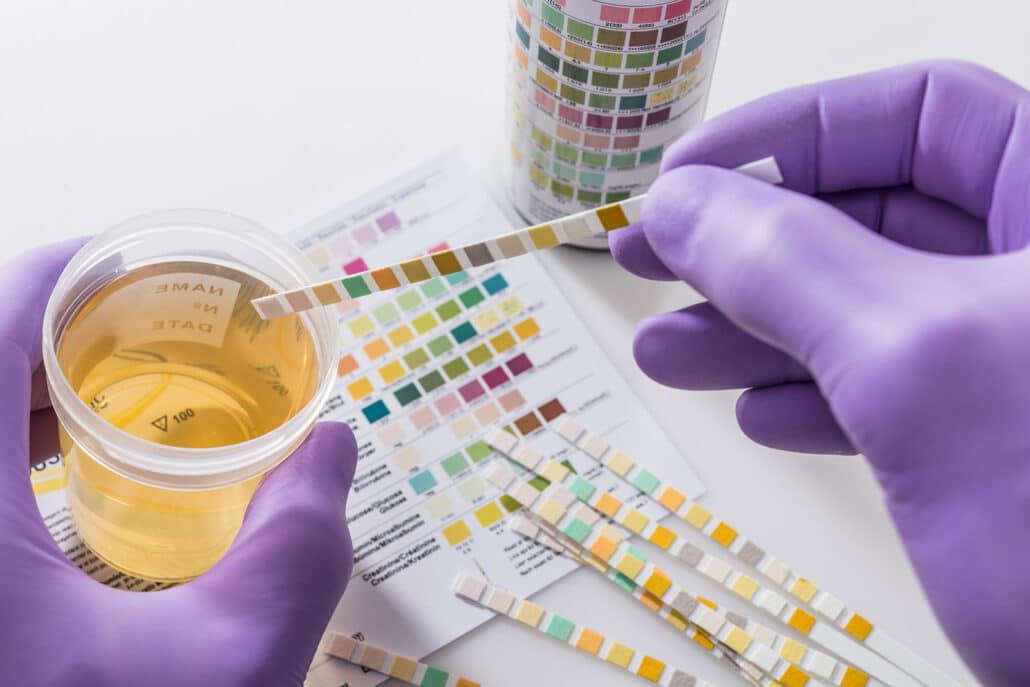Testing positive for illicit substances can mean several unpleasant things. For example, if you have to submit to a drug test before an employer will hire you, a positive test will keep you from getting a new job. If you are on a sports team and test positive for substances, it could prevent you from playing in the next big game. Every once in a while, you have to be concerned about taking a drug test, but the best thing that you can do is get help for your substance use disorder so that you never have to worry about drug tests again.

Table of Contents
- 1 What Is the Best Defense for a Positive Drug Test?
- 2 The Best Option
- 3 Can an Employer Fire an Employee for a Positive Drug Test?
- 4 Drug Testing
- 5 What Types of Drug Tests Are There?
- 6 Screening before Hiring
- 7 Screening of Current Employees
- 8 Screening that Occurs Randomly
- 9 Screening after an Accident Has Occurred
- 10 Screening after Treatment at a Drug Treatment Center
- 11 Medical Marijuana and Drug Tests
- 12 False Positives
- 13 HIPAA
- 14 Conclusion
What Is the Best Defense for a Positive Drug Test?
If you sincerely believe that your test results are false positives, you can dispute them. You may have eaten something that is known to cause false positives on drug tests, or your prescription medications may be the reason for a positive drug test. If this is the case, you must inform your employer so that you can repeat the test.
On the other hand, your drug tests may have positive results because you used illicit substances. It is important that you do not try to come up with unreasonable or illogical reasons for the positive results. Some schools and workplaces must be open about their zero-tolerance drug policies, so if you are in this type of environment, you may have been aware of the policy before you ingested the substance. You will not be able to create an excuse that will absolve you of responsibility, so you will have to accept it.
The Best Option
Your employer may be willing to help you if you admit that you have been struggling with substances. Under the Family Medical Leave Act, you have the right to receive up to 12 weeks of treatment at a drug treatment center. During this time, your employer will not be able to fire you or eliminate your position or your benefits. Even so, your employer will not be required to continue paying your salary during this time.
If you take the initiative and show your employer that you are willing to get help for your addiction, he or she may show leniency. This will require that you take responsibility for your issues. You will have to acknowledge the fact that you are in a difficult situation and that you need help. This would be the first step in the process. The second step would be to get treatment at Long Island Interventions.
Can an Employer Fire an Employee for a Positive Drug Test?
If it was a pre-employment screening, the employer will be able to refuse to hire you if your drug test is positive. In some states, your employer will not be able to fire you if you fail a drug test and agree to obtain treatment for a substance use disorder. If you are a federal contractor, your employer may require that you pass a specific type of drug test, and if you don’t pass this test, your employer can fire you. An employer can also fire you if your job is related to safety.
Keep in mind that an employer may fire you if he or she believes that you are not capable of performing your duties. This may occur whether you have a positive drug test or not.
Drug Testing
Employers use drug testing as a tool to prevent the problems that drug use typically causes in workplaces. However, employers must follow all of the rules and regulations that their local, state and federal governments set up for them. On the day of the test, a trained professional may come to your place of work to take samples, or you will be directed to a certified laboratory.

Drug testing is used to detect the following categories of substances:
- Phencyclidine or PCP
- Opiates
- Marijuana
- Cocaine
- Amphetamines
What Types of Drug Tests Are There?
The type of drug test that you will be required to take will depend on the substance that the test will need to detect. It also depends on the type of specimen that will be collected.
Specimens for drug testing include the following:
- Sweat
- Saliva
- Hair
- Urine
Drug tests may be able to detect additional substances, including ethanol, benzodiazepines, barbiturates, hydrocodone, ecstasy, methadone, methaqualone and propoxyphene.
Employers may require drug tests for the following occasions:
Screening before Hiring
Before an employer hires an employee, he or she will have to pass an interview and a background check. Some employers also require potential hires to pass a drug test before they will be offered the job. If you have used substances in the past, an employer cannot refuse to hire you because of it, but employers are allowed to require you to pass a drug test before they offer you a job. If you fail the test, an employer can refuse to hire you, and he or she will not be guilty of discrimination.
Screening of Current Employees
In some instances, employers will require their current employees to submit to drug testing. This may be because the employee is demonstrating behavior that makes the employer believe that the employee is using substances. It can also be because the drug tests are required during annual physical exams. If a drug test is part of your employer’s physical examination, your employer must inform you of that fact before you submit to the exam.
Screening that Occurs Randomly
Employers use random drug testing to prevent their employees from engaging in drug use. This type of drug testing isn’t necessarily illegal, but some employees have sued their employers for wrongful discharge, discrimination, defamation and invasion of privacy. You are not required by law to submit to your employers’ drug tests, and each state has its own rules and regulations for how and when employers may use drug testing in the workplace.
Screening after an Accident Has Occurred
After an employee has been involved in a workplace accident, employers must determine the cause of the accident. In this case, the accident may have been caused by unsafe practices, but intoxication at work may have been a contributing factor. Therefore, the employer must ask the employee to submit to a drug test.

Screening after Treatment at a Drug Treatment Center
After an employee completes treatment at a drug treatment center, the employer may opt to test this person to ensure that he or she remains free of substances, and it helps employees remain on their treatment programs.
Medical Marijuana and Drug Tests
People often are concerned about their use of medical marijuana and the requirement to submit to a drug test. Medical marijuana is legal in some states, and other states allow their citizens to use marijuana on a recreational basis. In this case, if you are having difficulties completing your job duties and your employer requires you to submit to a drug test, your employer will have the right to terminate your employment if you test positive.
If you have a medical marijuana card in Rhode Island or Massachusetts, your employer is not allowed to fire you for this reason. If you have a medical marijuana card in New York, your employer is required to treat you like any other employee with a disability. Even so, no state in the union is required to make accommodations for you to use marijuana while you are working.
False Positives
False positive drug tests occur, and one reason may be the medications you took before the test. It can be as innocent as an over-the-counter cough medicine that causes you to test positive for PCP. Over-the-counter allergy medications contain diphenhydramine, and it results in positive drug tests for opiates and PCP. Sudafed contains pseudoephedrine, and this may cause a positive result for amphetamine or methamphetamine. Advil, Aleve and Motrin may produce false positive results for barbiturates or THC.
Prescription medications can also present false positive results for illicit substances. Antidepressants, antibiotics, antipsychotic medications and proton pump inhibitors have resulted in false positives on drug tests.
HIPAA
According to the Health Insurance Portability and Accountability Act or HIPAA, the health provider is required to keep your medical information confidential. This makes relaying the results of drug tests to employers a tricky situation for laboratories. HIPAA doesn’t allow your employer to have access to your complete drug screening results, but they are required to keep the information they do receive confidential.
In most cases, a limited number of people can have access to the results of your drug tests, and they may be supervisors, human resources and your direct managers. These people must maintain the confidentiality of this information. So, if you tested positive for substances, this information must remain private.
Conclusion
Rather than wait for a positive drug test to completely disrupt your life, contact us at Long Island Interventions. We will put you on a path toward living a life without substances so that you never have to be concerned about testing positive for substances again. Contact us today.
FAQ
What happens if your drug test comes out positive?
Published on: 2022-12-30
Updated on: 2025-04-08

